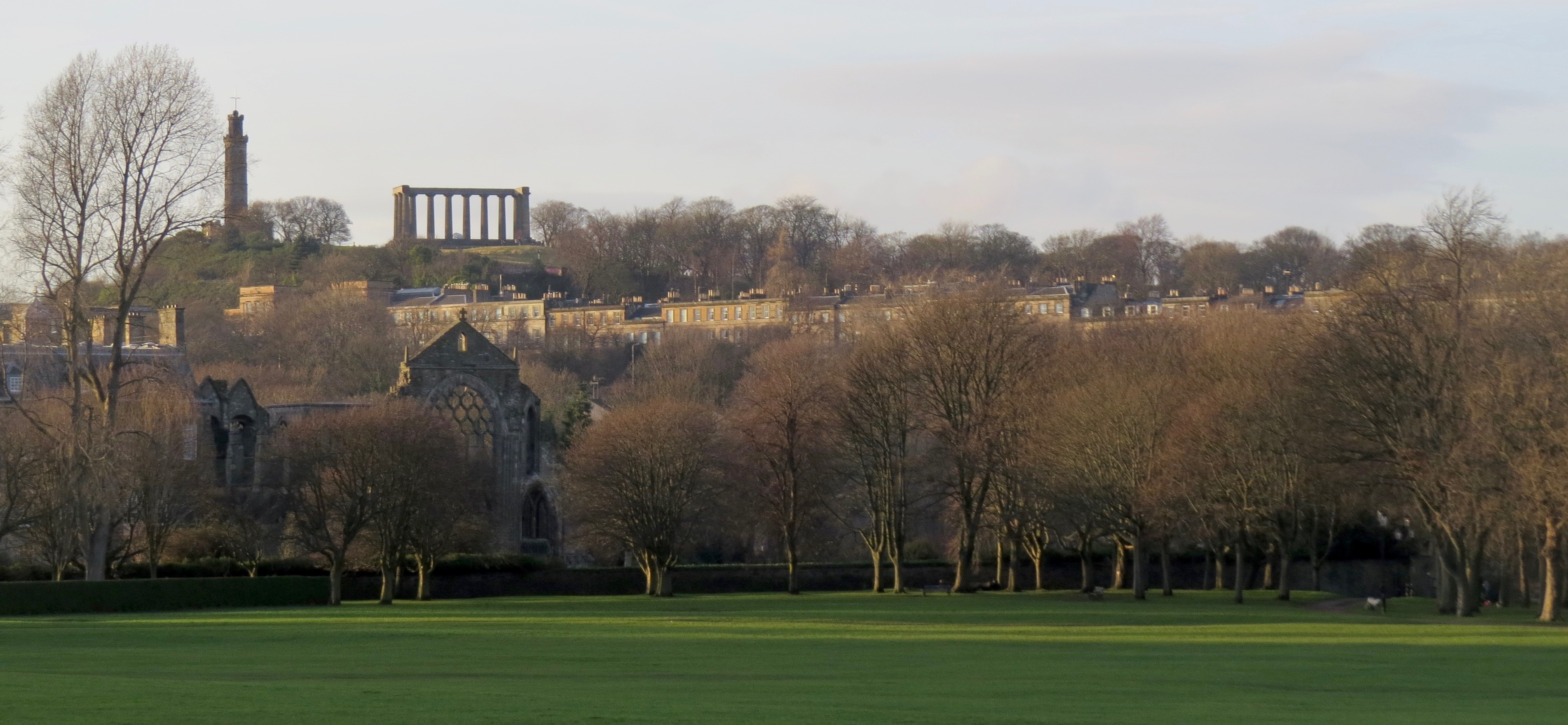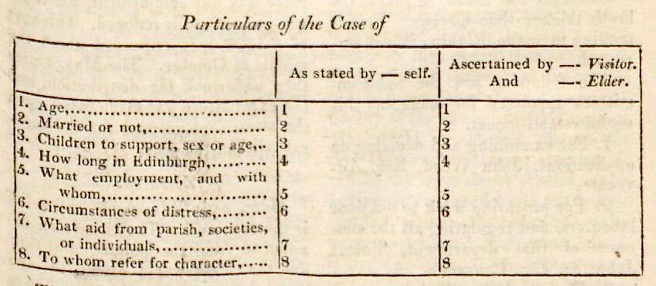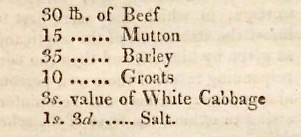
According to Libby Brooks in the Guardian (1 January 2017), Fife and Glasgow Councils are currently considering pilot schemes for a universal fixed, basic income no matter what recipients already earn in benefits or wages.
Advocates see the proposal as a means of radically simplifying the UK’s unwieldy benefits system, strengthening social solidarity, and widening choices/mobility about what life course each individual can embark upon.
Despite having its origins at least as long ago as the 16th century, Glasgow’s Councillor Matt Kerr concedes to the Guardian that ‘There will be a lot of resistance to this. … Part of the problem is we’re working against a whole discourse of deserving and undeserving poor’.
Plus ça change …
Two hundred years ago, Scotland was already experimenting with – for the time – enlightened solutions to problems of unemployment and poverty. The effects of a poor harvest in the summer of 1816, and a more generalised economic depression following the end of the Napoleonic War, required counter-measures. Edinburgh’s and Aberdeen’s privately funded responses were nothing like as radical as those mooted today, and had at their roots some of the basic assumptions which may yet make those new proposals politically impossible. Interestingly, Glasgow – then as now – entertained a limited something-for-nothing approach.
A summary of the three approaches appeared on 1 January 1817 in the Scots Magazine, which article we reproduce in full below. If nothing else, what becomes clear from it is that the disproportionate suffering of the dispossessed and the left-behind, and the unpredictable consequences of lost social cohesion, are phenomena which are not restricted to our own post-industrial and globalised times.

General View of the Measures taken for the Relief of the Labouring Classes in EDINBURGH; with some notices on the same Subject from GLASGOW and ABERDEEN.
IN our last Number, we gave an account of the formation of the plan for affording relief to the labouring classes in this city and its suburbs, under the very severe pressure now arising from want of employment.—The following information, relative to the mode in which it has been carried into execution, derived from authentic sources, will, we hope, be gratifying to our readers—
The very judicious principle here acted upon, is, that the relief should not be bestowed, unless some corresponding equivalent in the former. It was also very wisely determined, that the employment thus afforded should not interfere with any of the ordinary channels of industry; that it should consist of works useful, convenient, and ornamental to the city, but which would not have been carried into execution, but for the extraordinary exertions now making. For this reason, no work could with propriety be afforded to artizans in their own lines of employment. The simplest species of out-door work was the kind required. This evidently pointed to the improvement of roads; not the regular and necessary lines of roads, but those formed for pleasure, and which might be considered as luxuries. The Calton-hill has long been the most eligible pleasure walk for the greater part of the inhabitants and when the new and excellent approach is opened by the Wellington Bridge, it must become more than ever a place of general resort. Messrs Jardine and Stevenson, Civil Engineers, whose judgment and taste in this department are undisputed, have drawn out plans, by which the roads round this noble hill may be extended and improved. They have also formed a new line through the King’s Park, which will form an important improvement to those by whom that beautiful walk is frequented. Mr Paterson, Architect, has particularly attended to other improvements which are carrying on in Bruntsfield Links.

Some difficulty having been found in procuring a sufficient number of tools, orders have lately been sent by Government to supply them as required, from the stores in the Castle.
In order to secure the due performance of work assigned, the whole number employed has been divided into parties of 100, with an overseer to each. These have been divided into smaller parties of 25, which have each a sub-overseer. The whole has been placed under the superintendence of a retired military officer of rank and experience.
The next and the most laborious task, was that of discriminating the proper objects to be employed, and the detection of imposture. This latter evil, it might have been supposed, would have been less to be feared, when money was to be given, only combined with employment, especially when the rate of payment was properly made very moderate. But it was found, that there were motives which induced some persons to apply when they might have found employment in the regular channels. An easier task, the allowances of soup, &c. given to those who had families, the labouring only during the day, while they could employ the night in other occupations, were motives impelling several to apply, who could not be considered as worthy objects.

A strict investigation was therefore necessary, and it was undertaken and performed, with the most meritorious diligence, by Principal Baird, J. H. Forbes, Esq. Robert Johnston Esq. and several other gentlemen, who have always devoted their labours to objects connected with the public good, with the same zeal as if it had been to promote their own private interests. The town was divided into twenty-six districts, to each of which a Visitor and Elder was appointed, to whom applications were to be made, and who were to report upon them to the Committee. A schedule was furnished to them, in which they were first to insert: the statements of the applicant as given by himself, and then the corresponding result of their own personal enquiries. It may not be uninteresting to exhibit the form of the schedule—

This schedule, when filled up, is delivered to the Committee for reporting on the cases of the applicants.—The Committee communicates its resolution to the Visitor and Elder, to be by them reported to the person applying.
It was afterwards determined, that the Visitors and Elders should make a new visitation every fortnight, in order to learn whether any change had taken place in the cases of those who were under their superintendance.
The rate of wages was at first a shilling a-day, but on the 20th January, it was reduced to 10d. Those who have families receive no higher wages; but they are allowed soup, meal, and coals, in proportion to the number of children. The wages are paid on Wednesdays and Saturdays: the meal and coal tickets are distributed weekly, the soup tickets daily. The latter are marked as to be presented at each successive half hour from 12 to 2, so that all confusion is prevented. 720 of these tickets are now distributing. It is found, that excellent and nutritious broth can be made at 1d per chopin [a Scots half-pint]. The following are the materials allowed for 430 chopins—

Cabbages are found to make the broth thicker than Greens. Pepper tending to make it thin, is not employed.
The following are the Sub-committees appointed for managing this useful establishment.
1. For examining and deciding on applications, John Wood, Esq. Advocate.
2. For procuring work to out-door labourers, and regulating all the concerns of that department, Robert Johnston, Esq. Convener.
3. For regulating the measures to be taken for the relief of artizans out of employment, Dr Baird, Convener.
4. For visiting and reporting on applicants, Mr John Wigham, Convener.
5. For food, Adam Duff, Esq. Convener.
6. For printing and accounts, Robert Dundas, Esq. Convener.
The number of applicants has very greatly exceeded the expectations of the Committee. It was not supposed that they would be beyond four or five hundred; whereas in a very few days they amounted to twelve hundred, and on the 29th of January had reached 1943. Of these, at the latter period, about 1200 were actually employed by the Committee. On the same date, the subscriptions (including £.1000 from the Prince Regent) amounted in all to £6,619”1”1.
Glasgow.
We do not possess any information from this quarter later than the middle of December. At that time the relief had been given in money only. Distributions to labourers out of employment had begun about the middle of July, and were first drawn from the residue of a fund raised several years ago for the same purpose. The allowances given were, to a single person, 2s. P week; to a man and wife, 3s.; and for every child, 6d. Where there was any employment, the relief was proportionally reduced. This sum of £.1500 was expended about the middle of October. The Magistrates then undertook the distribution, and the expenditure was made to fall upon the assessment imposed for the general relief of the poor.
Aberdeen.
Here, as in Edinburgh, the relief is given in work. The clergymen announced from the pulpits, that they and the elders would attend to take down the cases of applicants. These were entered in printed schedules, which were then transmitted to the Committee, who decided upon them. The labourers were employed in repairing the streets and approaches to the town, which, from its utility to the inhabitants, was conceived to be a kind of work that would encourage subscriptions. The whole number who applied were 120, consisting of labourers, a few tradesmen, and a good many sailors. Of those not more than 80 were employed at any one time; which were divided into two bands, working in separate streets.—The allowances are, to a single man, 5s. a-week; to a married man, 6s.; for every child not exceeding four, 6d. additional, thus making the maxium 8s. A soup kitchen has been employed for the relief of poor householders, but has not been connected with the general plan for employing the poor.